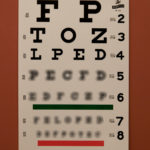When the police or prosecutor on a case gets information against the defendant from someone who has a shady past, or simply someone with a bad memory—the stakes are high. Eyewitness identifications and testimonies are given much credit at trial, but are far from foolproof. Being cited in numerous cases of later exoneration, the District of Columbia is taking steps to help maintain the integrity of the use of witnesses and prevent such wrongful convictions.
 According to the Washington Post, the D.C. Superior Court created a task force to make recommendations on the use of witnesses and identifications. They came up with several changes that the District will be implementing.
According to the Washington Post, the D.C. Superior Court created a task force to make recommendations on the use of witnesses and identifications. They came up with several changes that the District will be implementing.
First, police will use computers and staff not associated with the case to give photo lineups to potential witnesses. This will help prevent influencing their choices. In addition, the court will begin keeping trial records permanently. Currently, they only keep them ten years—not long enough when a DNA exoneration could happen decades after a conviction.
Also, courts will be telling defendants when a witness or informant may have issues that call their credibility into question. Currently, the court doesn’t inform the defendant that an informant was paid, earned a plea deal, or had an extensive criminal record, until just a few hours or days before trial. Now, they will be sharing that information at least two weeks beforehand.
Eyewitness misidentification was involved in more than 70% of DNA exonerations since 1989. These identifications are seen as completely reliable by juries, but are far from error proof.
While the District’s improvements are commendable, they aren’t enough. The panel didn’t recommend blind sequential photo lineups. This means showing the witness photos of potential suspects one after another rather than all at once. This practice has been shown to significantly reduce the chance of a misidentification. However, the panel says they need more information on the issue.
Two states—North Carolina and Ohio—have mandated blind sequential lineups, while numerous cities have adopted their own standards voluntarily.
Whatever can be done to reduce the risk of wrongful convictions, should be. But, governments at every level take significant motivations to make such changes.
If you are accused of a crime, whether in D.C. or in Maryland, we may be able to help. From drug charges torobbery, you have rights and legal options.
Leave a Reply